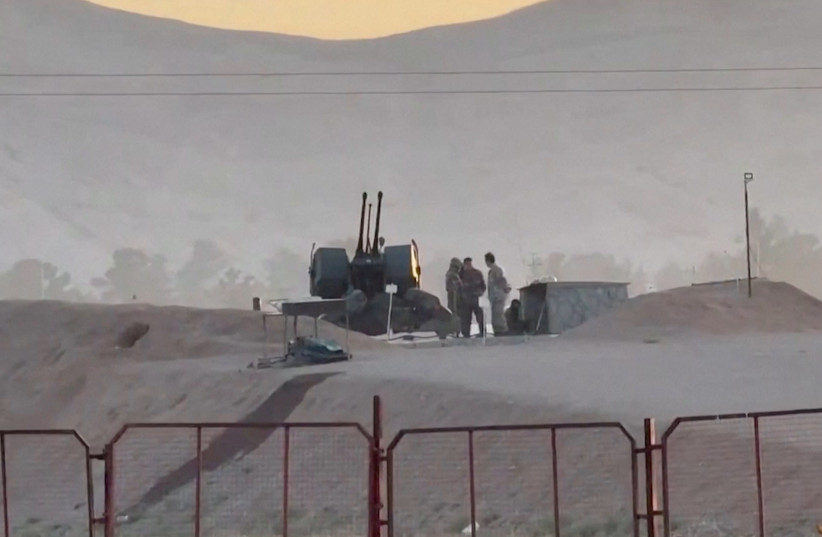Israel and Iran appeared to step back from the brink of an all-out war on Saturday, even as Iranian Foreign Minister Hossein Amirabdollahian warned his country would respond forcibly to any further military action against it.
“If Israel wants to do another [act of] adventurism and acts against the interests of Iran, our next response will be immediate and will be at the maximum level,” he told NBC.
Amirabdollahian spoke hours after Israel struck Iranian air force assets in Isfahan, in central Iran, early Friday morning in retaliation for the Islamic Republic’s unprecedented attack on April 14 of more than 300 drones and missiles.
Israel had said that such attacks could not be normalized and that it would have to respond but did not go so far as to publicly acknowledge the Isfahan strike.
“If Israel takes a decisive action against my country and this is proven to us,” the foreign minister said, “our response will be immediate and to the maximum and will cause them to regret it.”

Amirabdollahian, whose words were translated into English by NBC, downplayed the significance of the Isfahan strike.
On Sunday morning, Iran International published footage of the damage caused to the Isfahan base as a result of the strike.
US-Israeli strike stirs tensions
Israel has not formally acknowledged the strike, but US officials confirmed it to American media outlets.
Israeli official security and governmental sources told The Jerusalem Post on Friday that the IDF was behind the attack: “An eye for an eye, a tooth for a tooth. Israel retaliated where they were attacked.”
That said, Israel will not officially accept responsibility for this attack for strategic reasons. Sources explain that the Iranians have downplayed it because they wish to avoid escalation.
Israeli sources told the Post that it’s unclear why US sources disclosed to American media that Israel was involved; they could have remained silent. Such silence could have preserved Iran’s dignity and avoided escalating the situation.
Italian Foreign Minister Antonio Tajani clarified for reporters at a press conference in Capri that the US was informed at the last moment that the attack would take place.
Tajani stressed that Washington was not involved.
Italy, he said, has spoken with Iran about the importance of de-escalation.
The United States has not been involved in any offensive activity against Iran and is seeking to de-escalate tensions between the Islamic Republic and Israel, US Secretary of State Antony Blinken told reporters in Italy at a press conference on the sidelines of a G7 meeting.
“The United States has not been involved in any offensive operations,” he said.
The US and Western powers have since urged Israel to constrain its response, as Jerusalem has insisted that it must strike back because such a missile attack cannot be normalized.
“The United States, along with our partners, will continue to work for de-escalation,” Blinken said.
British Foreign Secretary David Cameron and German Foreign Minister Annalena Baerbock visited Israel on Wednesday to personally deliver that message.
Blinken said on Friday, “We’re committed to Israel’s security. We’re also committed to de-escalating, to trying to bring this tension to a close.”
He also spoke on behalf of the G7, which includes the US, Canada, France, Germany, Italy, Japan, and the United Kingdom.
“The G7 condemned the unprecedented Iranian attack on Israel” on April 14, which was “unprecedented in scope and scale,” Blinken said.
In response, the G7 countries, including the US, will adopt additional sanctions against Iran, he said.
Baerbock said that “we need to do whatever we can” to make sure that events do not spiral into unforeseen consequences, stressing that no one wants to be “thrown into a catastrophe.”
The G7, in its statement, condemned Iran’s April 14 attack and affirmed the political and economic forum’s full solidarity, support, and “commitment towards Israel’s security.”
“Iran’s actions mark an unacceptable step towards the destabilization of the region and a further escalation, which must be avoided,” it said, as it called on both parties not to escalate the situation.
